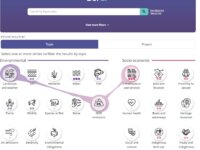Recognising the need for a high level of Cyber Security across the public sector, the National Cyber Security Strategy (NCSS) called for the creation of a Common Cyber Security Baseline Standard across all Public Sector Bodies and for the establishment of the “CORE Network” to share best practice for cyber security across Government. This project embodies the Irish Civil Service Renewal 2030 Strategy by delivering evidence-informed policy and services, harnessing digital technology and…
Innovation Tag: Methods and Tools
ANII, in collaboration with the private sector and the support of Uruguay's Ministry of Health, is piloting a novel Open Innovation Initiative (MH2030). Ageing populations and rising numbers of people with multiple chronic diseases are placing an increasing burden on health systems. There is a need for improving healthcare by fostering an innovative environment. Through this new co-creative approach, local entrepreneurs work collaboratively with partnering healthcare institutions to tailor and…
As part of the national plan for the digital transformation of education in Greece, the Greek Ministry of Education's technical body designed and developed “e-me”, a social, collaborative, and extendable cloud-based digital educational platform for pupils and teachers. The goal was for e-me to provide a safe digital workspace and collaboration environment for the entire Greek K-12 community of 150.000 teachers and 1.5M pupils and, thus, to operate as the Greek public official digital…
Louth County Council has piloted a new training resource, the Healthy Ireland Design Innovation (HIDI), which assists cross-departmental staff to apply the principles and goals of ‘universal design’ to their local economic and community planning activities. Taking a ‘universal design’ approach provides an ‘awareness framework’ to align innovation across the varying strands of local service and activity planning. As a result, staff can better plan for the integrated health, wellbeing,…
Young Entrepreneurship Mentors is an education project to disseminate the culture of innovative and impact entrepreneurship. It aims to acheive this through agile methodologies that empower students from integrated High Schools in the Federal Network of Science and Technology Education to undertake sustainable solutions for their community through science, technology, and innovation.
Prioritization of projects and initiatives is often challenging and traditionally requires significant investment in administrative time and effort. The Town of Aurora has created a process that automates the prioritization of projects through an algorithm that scores projects based on Service Improvement, Financial Viability, Reputation Improvement and Ease of Implementation.
The techDetector is the first technology radar giving an overview of emerging technologies that have the potential to influence the area of sustainable development in the future. It lists future technologies from all sectors of sustainable development and assesses their potential impact on sustainability and gender equality. The techDetector helps inform, sensitize and support foresight processes, enabling better decision-making by providing sound information on technological developments.
„Gemeinsam Digital: Berlin“(Together Digital: Berlin) combines the digital and smart city strategies. We define smart as solving future challenges in creative, open, experimental and participatory ways. This strategy helps to establish new work approaches, agile methods, competence building, and a systematic knowledge transfer between the administration and its inhabitants. By aligning technologies, methods, and cultural processes, it supports existing strategies to reach their respective…
The NSW Government has developed a whole of government spatial tool to improve planning and pre-development processes. The tool modernises the traditional approach to strategic planning, site assessment & land use evaluation and provides user friendly access to GIS capabilities where multiple agencies can work together on a project in NSW public sector. Through this, government agencies are enabled to make faster, better informed, more transparent and consistent decisions on NSW land.
Governments are buried in hard-to-search PDF documents that hold data with great value for citizens, scientists, and public servants. At the Canada Energy Regulator, we developed data science methods to liberate 20 years – and tens of thousands of kilometres – of environmental and socio-economic data from over 1900 PDF documents from oil and gas pipeline applications. We made it easy to search and explore this data in our powerful and user-friendly search tool, BERDI.







